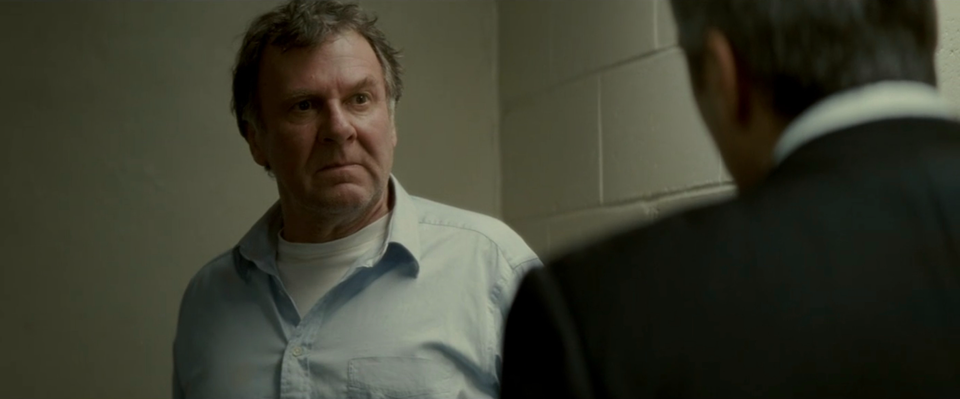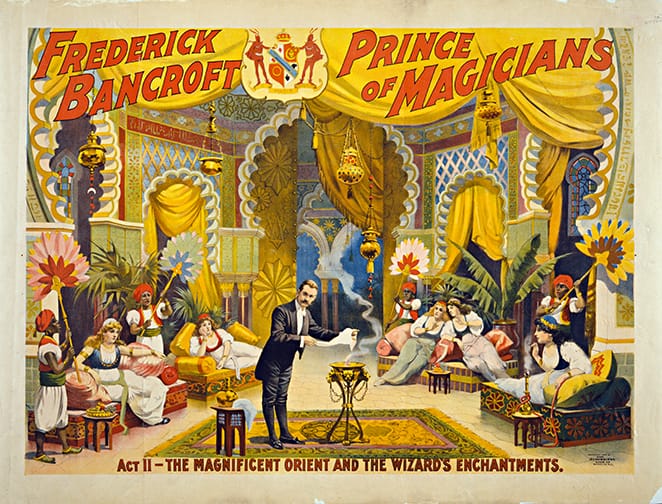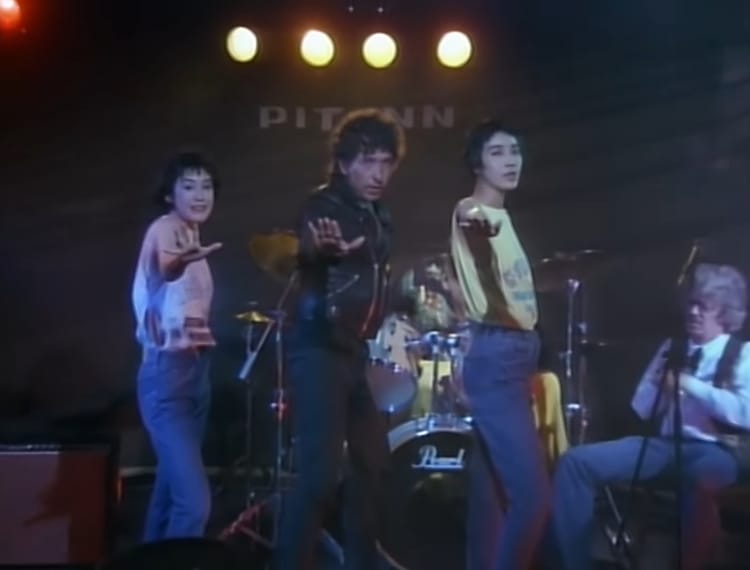It's Not Just Madness

Note: The version of this post that just went out over e-mail misspelled the god of death as “Sheva” rather than “Shiva.” I know someone named Sheva. My bad.
Last week, we lost the great Tom Wilkinson, and I saw an outpouring of shock and grief. Wilkinson was such a fixture of our screens for so many years that it’s hard to fathom we won’t be seeing any more of him. And amidst the references to The Full Monty, Mission: Impossible, John Adams, and more, the project I saw brought up most frequently on Twitter was unquestionably Michael Clayton.
I think it’s fair to call Michael Clayton something of a cult object. It was released in the scrum of the very good year that was 2007, and it didn’t make the same cultural impact as something like No Country for Old Men or There Will Be Blood. We all knew of it on Oscar night thanks to Tilda Swinton’s somewhat surprising Best Supporting Actress win, but it never became a household name. It’s a dense, oblique movie–a thriller you really need to focus on to be thrilled by. And over the years, like Speed Racer and The Nice Guys, Michael Clayton has picked up its Twitter throng, who shout its praises at any opportunity. And, for more than fifteen years now, I just sort of ignored it.
Yes, I had never gotten around to Michael Clayton. I knew a couple of things about it: George Clooney plays a fixer (OK, sure), and it’s one of the century’s Great Movies (cool, but there are plenty of Great Movies I also haven’t gotten around to). It was on the list! But it was never high on the list. And then my friend Olivia Hunter Willke shared this thought on Twitter upon Wilkinson’s passing:
Tom Wilkinson as Arthur in Michael Clayton was the first explicitly bipolar character i ever saw on screen. i was 12 and it has stayed with me. the first time i had seen mental illness portrayed as a material reality, opposed to an abstract depiction of someone being "crazy."
I put on Michael Clayton that night.
Yes, Michael Clayton is one of the century’s Great Movies. I’m not necessarily interested in writing about that in particular. What I’d like to say is that, yeah, Olivia’s right: Michael Clayton is a truly exceptional case of depicting bipolar disorder on screen. And by way of processing my own emotional ride watching this movie, we’re going to get into how.
First off, a few movies come to mind for me when I say “bipolar disorder on screen.” I think of Infinitely Polar Bear. I think of Silver Linings Playbook. I think of movies that are about bipolar disorder. These are valuable movies…I guess. They probably serve some function for some people, representation matters, etc. I don’t like those movies very much. They bum me out in the extreme, because they take a chemical condition and turn it into the entirety of the character’s existence. It’s kind of like that (possibly illusory) distinction between “being bipolar” and “having bipolar disorder.” It’s something that used to matter to me more than it does now, but there is a power to that distinction. Try it for another condition it’s less commonly applied to: I am cancer. Nope, one has it. I am lupus. Same deal. I am Crohn’s disease. Hell, one doesn’t even say, I am depression. But for a few conditions (and bipolar certainly isn’t the only one; dyslexic comes to mind, as does anorexic/bulimic) we do use the term for the whole.
So am I bipolar? I don’t like to think so. I’m a writer. I’m a husband, and a dad. I’m American (for better or worse), and I’m white, and I’m cis, and I’m het, and I’m right handed, and I have bipolar disorder. That works for me. Maybe it works for some people to say they are the diagnosis. I like to just have that diagnosis, stick it in the metaphorical backpack labeled “My Bullshit,” and carry it around with all my other…well, bullshit.
This is a long way of saying Michael Clayton is essentially the movie version of that distinction. If Infinitely Polar Bear and Silver Linings Playbook are the “is bipolar” of movies, Michael Clayton is the “has bipolar disorder of movies.” Does that make sense? We’ll see. Let’s get into it.
The first thing we hear in the movie is Arthur Edens (Tom Wilkinson), high-powered New York lawyer, ranting and raving. We only hear Arthur’s voice; we’re seeing nighttime shots of a Manhattan office building, which seems unbearably ominous by virtue of Arthur’s monologue. There’s something thrilling about it–we’re primed by movie grammar to assume this is key plot being relayed, this is what matters, this is what we’ll be coming back to. And there’s a pace and a tone to Wilkison’s voice that conveys that–but we’re also hearing the highly pressured speech of a strung-out individual. We’re hearing the words, “This is not an episode [or a] fuckup…try and make believe this is not just madness, because this is not just madness.”
There’s something really complex about the connotations of this opening. Because Arthur is delivering key plot information. He’s the plot driver; he’s uncovered the film’s criminal conspiracy, and he’s exposing it. Yet this is inherently linked to the fact that Arthur is, unquestionably and self-avowedly, having a manic episode, meaning he’s doomed not to be believed. Because, of course, there is enough incoherence and grandiosity to the speech that we can begin to discount it. Arthur is describing a feeling of being covered in film and afterbirth, and a consequent feeling that “I’ve breached the chrysalis [and] been reborn.” To me, there’s a glimmer of something deeply recognizable in that. I’ve never had quite the full psyche-consuming episode Arthur is experiencing–I’ve never had the kind of physical sensations he’s describing–but I’ve certainly felt a sense that my perceptions and awareness have transcended somehow. “I’ve breached the chrysalis” isn’t a bad way of putting it into words.
“I had the most stunning moment of clarity,” Arthur says. But then, he tells his friend Michael (George Clooney), to whom we understand he is speaking–though we don’t know when or where–he decided to wait. And this is where the script leaves us, on that thrilling cliffhanger. Because this is a movie, and its plot has just been kicked into gear–by bipolar disorder.
I’m drawing a pretty fine distinction here, I suppose, between a movie being about bipolar in the good way vs. the bad way. Because this movie is about bipolar disorder, but what matters is that the disorder functions as the plot driver rather than the plot itself. The plot of this movie involves a conspiracy to cover up a corporation’s culpability in mass carcinogenic contamination (I think that’s my most sustained alliterative run ever). One of the characters is bipolar (I mean has bipolar disorder! Look at that, I did it myself). The plot could not exist without that character’s bipolar disorder. But the movie has many, many other concerns. It just has this diagnosis braided into the fabric. And it’s exceptionally–really, weirdly exceptionally–rare for this to be the case. I know there are any number of marginalized groups who feel this way by virtue of sexual, gender, racial, or any other identity. There are gay/trans/indigenous/etc. people in the world going about their business in the mosaic of society; on screen, we often see “the gay/trans/indigenous/etc. person.” There’s a flattening for the convenience of plot and story. Movies thrive on shortcuts and streamlining. But a movie like Michael Clayton, as I’ve said, is pretty complex. And one of its complexities involves showing mental health as a part of the world, one that necessitates navigation without being narratively all-consuming.
That said, Arthur’s manic episode is all consuming in certain respects. He’s the film’s problem–the first thing we learn is that he’s tanked a deposition by stripping naked while raving in seeming incoherence. By the time we see Arthur in person, Michael is picking him up at the police station. Here, we loop back around to his opening monologue, but the entire scene has a new context: we see a guy who is apparently “just” crazy, prone to running through a parking lot in nothing but his socks. We don’t see the guy holding the keys to a propulsive thriller. We see a sick individual who decided to go off his meds. We see a guy in crisis: Arthur is gripped by a terror that his legacy will be corrupted by his years-long defense of “one horrific chain of carcinogenic molecules,” but what this gives way to is a specifically manic spinning and escalation. This is the grandiosity that’s a hallmark of the disorder–a feeling that what one is experiencing is almost unbearably significant. For Arthur, that just happens to be tied up in his dawning awareness that he’s defending the bad guys.
When Michael tries to convince Arthur to take his meds, things take a really gutting turn: “I’m not losing this,” Arthur tells Michael. “Everything is finally significant.” And there’s a real high to that feeling–more than anything else, that feeling is what characterizes my experience of mania: a sense of heightened perception in some way shape or form–in the most extreme sense, colors seem sharper, images more clear. It’s intoxicating, and it is really hard to accept giving up, even if (like me) you’ve rarely resisted medication and never gone off it. “The world is a beautiful and radiant place,” Arthur snaps at Michael. “I’m not trading that.” And then Michael says something you can only say if you’ve never experienced it: “If it’s real, the pill won’t kill it.” Sadly, that just isn’t true. Because the pill does extinguish the perception of heightened perception.
And what comes along with a manic episode? Racing thoughts. But if you happen to be intelligent, as Arthur clearly is, that does mean racing through the occasional insightful thought, and maybe even more than a few of them. And Arthur, as it happens, does have the skill and wherewithal as a lawyer to…well, take down this entire conspiracy. But it’s impossible for him to get that across when he’s standing tall, puffing his chest, and telling Michael, “I am Shiva, the god of death.”
“It’s very simple,” Michael tells the firm’s team later. “Arthur has a chemical imbalance.” But there’s nothing simple about the glimpse we get at Arthur, curled up in bed in his undershirt, on the phone with Michael’s son. We see a lonely, exhausted man whose brain won’t stop spinning, who still sees the world as thrillingly interconnected–when Michael’s son tells him about the fantasy novel he loves, that’s miraculously applicable to Arthur’s situation, because of course it is, everything is, and we’ll later see Arthur roll the iconography of the boy’s novel into his ultimate unmasking of the evil corporation.
As I say, Arthur is the film’s problem–he bolts from the hotel, leaving a note scrawled on the wall for Michael to find: please believe it’s not just madness. And that just is fairly crucial; Arthur isn’t denying that he’s manic. He’s just begging Michael to accept that with that mania comes something profound that he can’t throw away. And, ultimately, he can’t throw it away or the plot collapses—the day can’t be saved without this episode. It’s very weird to try and say, “Thank goodness for a manic episode,” but (at least by my interpretation) that’s essentially what the movie is inviting us to do, and it’s a thrillingly risky proposition.
Michael’s task becomes finding and neutralizing Arthur before some more nefarious party does so. And Michael, despite being probably more morally compromised than anyone by virtue of his largely shadowy “fixing” for the firm, seems like the best kind of friend to a bipolar person (a person with bipolar disorder; I did it again). “I’m saying you’re crazy,” he says into Arthur’s answering machine, “but I’m telling you you’re right.” Michael affirms both sides of the situation, not bullshitting Arthur but also supporting him. And later, when he finds Arthur on the street (with a bag packed tragically full of baguettes, because one tasted good so he wanted them all, despite the fact that he’ll never make a dent before they go stale) Michael tells him, “As good as this feels, you know where it goes.” There’s a powerful sense of history between the two men, as well as Michael’s understanding of the euphoria we’ve by now seen Arthur experiencing when he walked agog through Times Square the night before.
In a bracing moment, Arthur’s expertise does break through his unstable demeanor, and he explains exactly why they can’t legally commit him. It’s one of the film’s major thrills, at least for me–because Arthur is having a manic episode, but it’s not like he’s left the building. He’s still Arthur, whom we know by now to be a shark, and the shark is still alive and well. It just happens to be supercharged with a chemical motivation to do the right thing.
Arthur doesn’t get the chance to see his plan succeed. The bad guys kill him. It makes me almost unbearably sad, so I won’t linger on it. And when he’s gone, the other characters use a lot of language like, It’s so sad, but… There isn’t much elaboration on what could come after the ellipsis but it might be something like what did you expect? Because, in the movies, we have certain expectations when a character goes off their meds. We know the script; there aren’t that many movies about bipolar disorder, and we learn about the world through the movies, so unless one does have up close and personal experience with it, we can have a pretty flattened perception of something like this. The characters, and the audience, expects someone like Arthur to hit certain beats, and one is the possibility of a sad ending.
Of course, in reality, it’s a lot more complex than that, and it’s more complex than that in Michael Clayton, too. Because the movie isn’t over when Arthur dies; he managed to put the endgame into motion first. And when Michael brings his friend’s manic crusade to its righteous conclusion, what language does he use? “I am Shiva,” he intones, “the god of death.” Because, in fact, it was not just madness.
And, against all odds, Michael Clayton goes onto the list of my personal tearjerkers.
I suppose that’s enough for January 1. Once again, I’ve used this newsletter as a space to process something, but maybe it helped someone else process something, too. Or, at least, gave you an opportunity to reflect on the fact that (yes, all right, I’m sorry) this really is one of the century’s Great Movies–and for a whole host of reasons.




